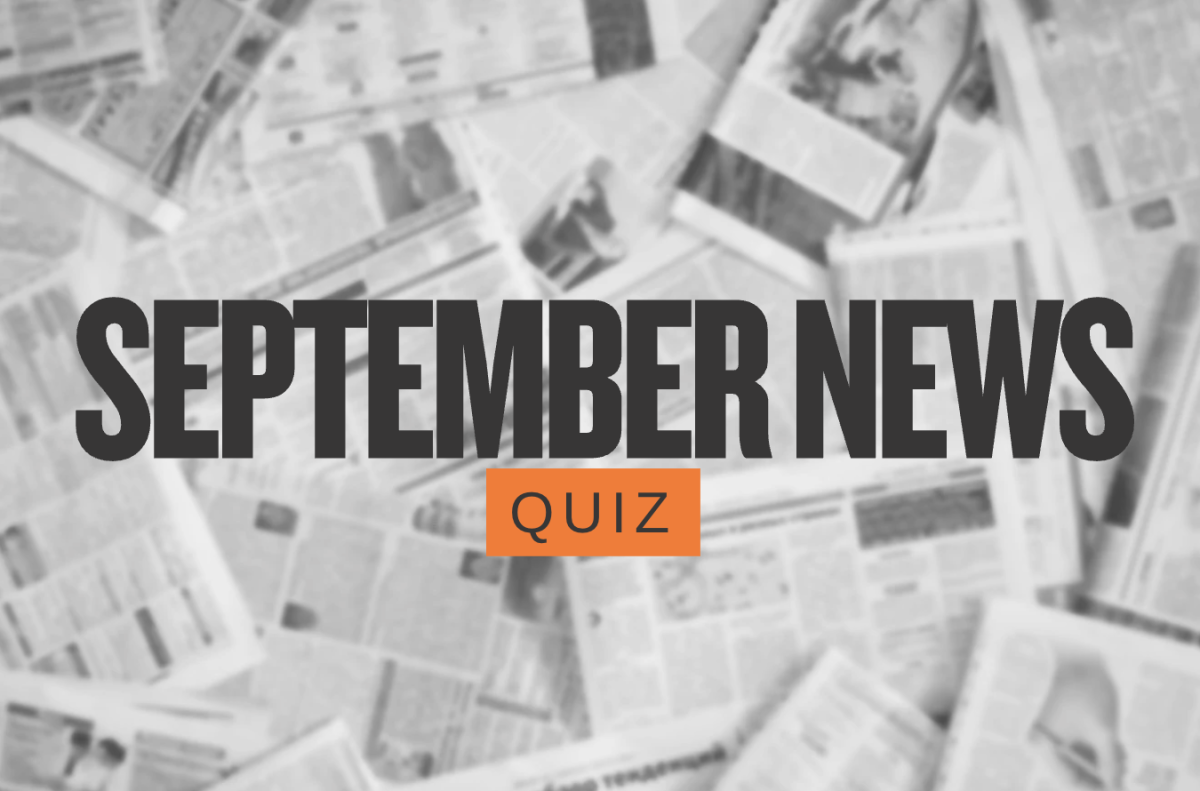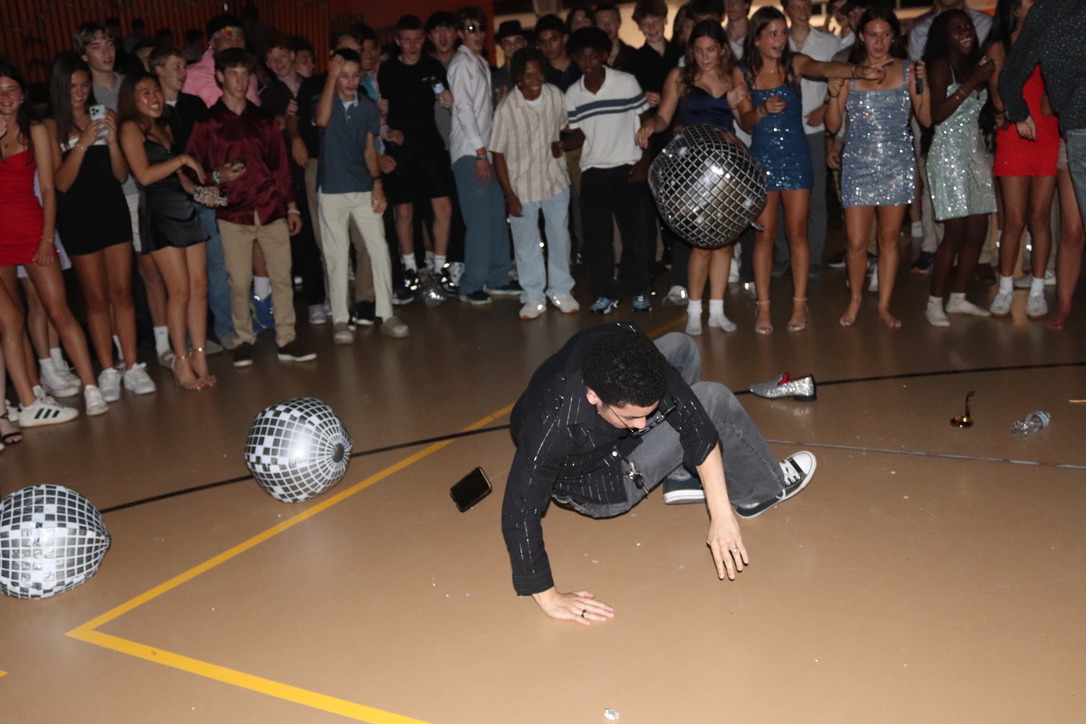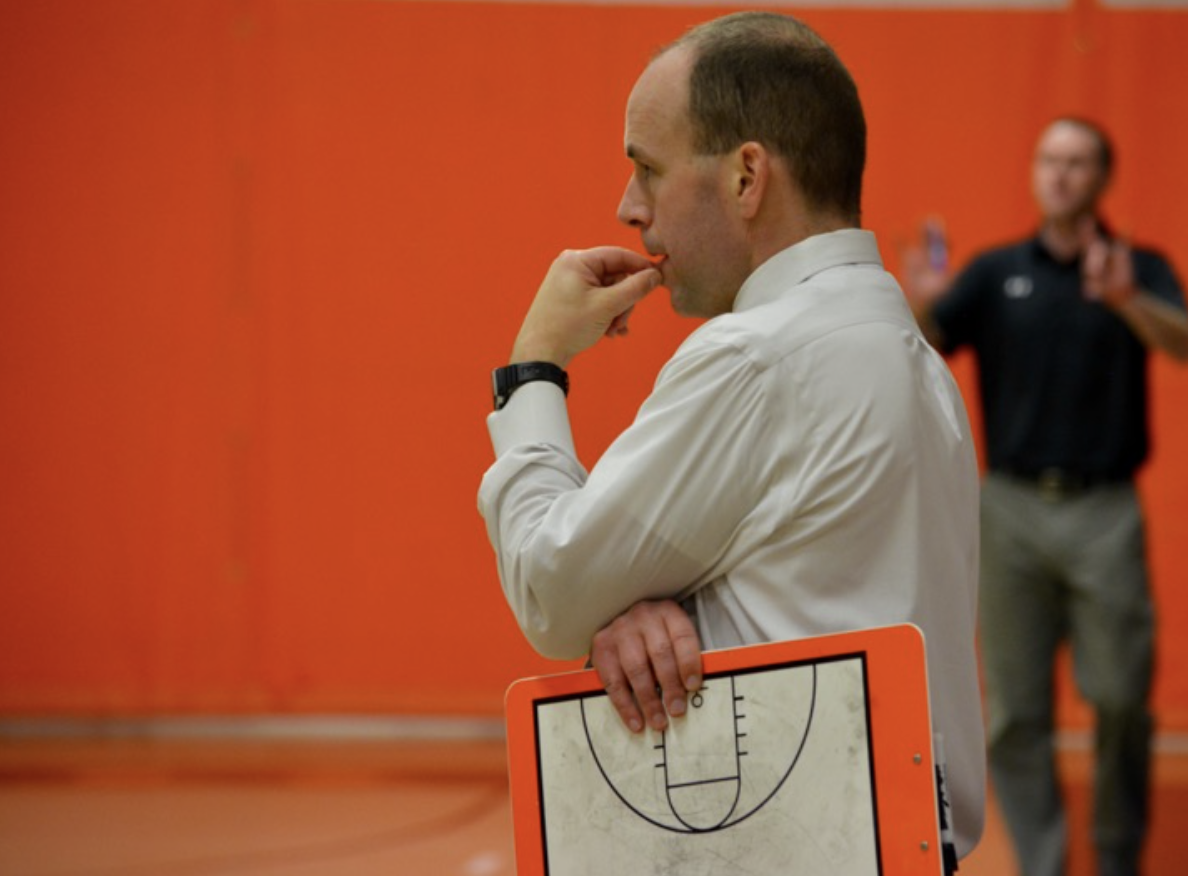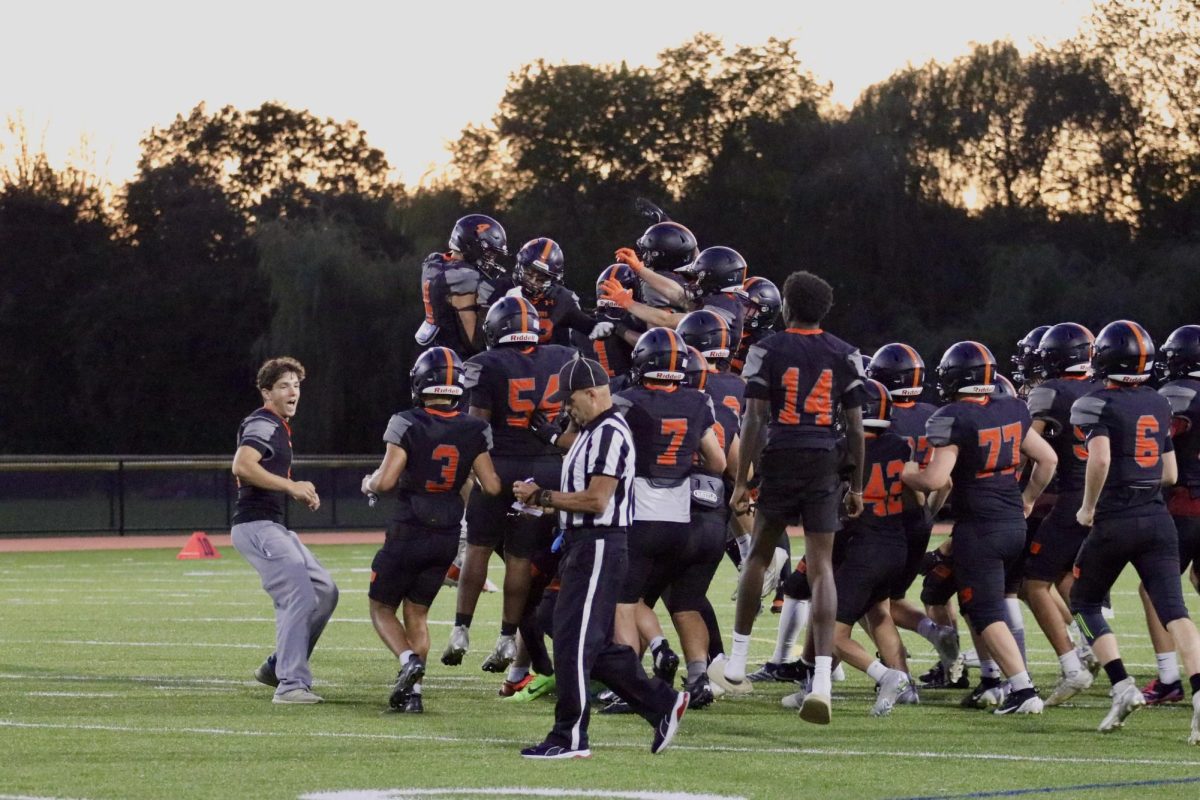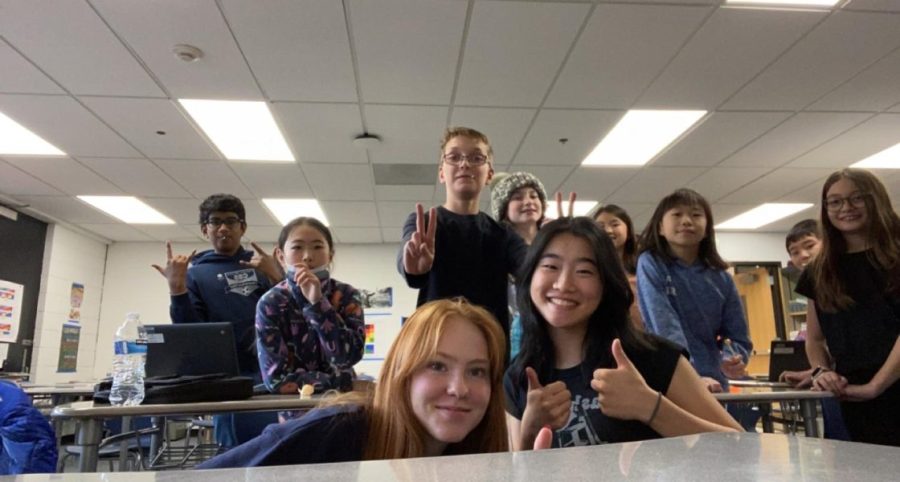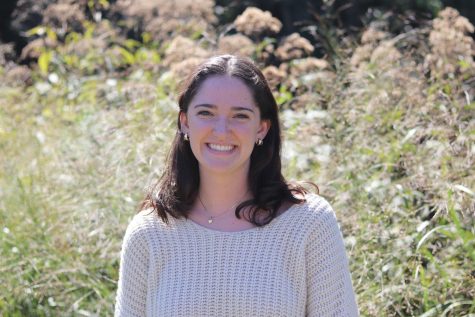Gina Wang: Instilling confidence in middle schoolers through debate
Credit: Courtesy of Gina Wang
President Gina Wang smiles in front of the members of Wayland Middle School’s debate club alongside senior Kat Lambert. Wang began the club in the hopes of rescuing some of the communication skills lost due to the coronavirus pandemic. “I wanted to help middle school students readjust to talking in front of their peers and being more confident in their speech as well as themselves in general,” Wang said.
November 30, 2022
Voices bounce off the walls of Wayland Middle School’s library, each carrying conflicting assigned arguments. In assertive and clear statements, the middle school students establish their widely researched argument, rehearsing what they will encounter at their debate tournament the upcoming weekend. High school students observe the practice, careful to note when the speaker could have worded their claim more effectively or used better enunciation. This sets the scene of WMS’s debate club, the creation of club Founder and President senior Gina Wang.
Wang knew she wanted to begin the club in the spring of 2021 based on the decline she saw in student’s communication as a result of the coronavirus pandemic. Through virtual learning, Wang was worried about the decrease in young students’ ability to present their opinions coherently without the atmosphere of a classroom to support them.
“I wanted to help middle school students readjust to talking in front of their peers and being more confident in their speech as well as themselves in general,” Wang said.
This issue was particularly important to Wang based on the impact debate has had in her own life. Identifying as a quiet student for much of her life, the experience she took from beginning debate her freshman year served to instill a new trust in her knowledge. This confidence helped her expression of her ideas.
“Debate really helped me find my own voice in the classroom,” Wang said. “Before beginning to debate, I was pretty shy and never really participated. I feel like debate helped me learn more about the world around me, which made me more confident in my opinions.”
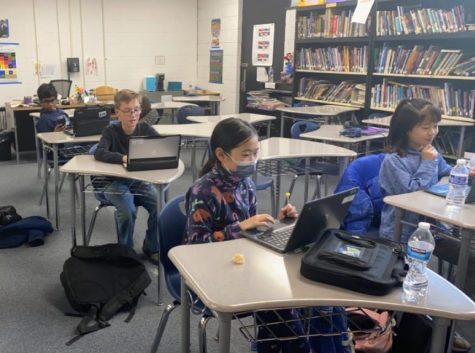
Wang anticipated that the debate experience would be similarly impactful for younger students, particularly ones who did not feel like they knew their place in the school and would benefit from assistance in finding new confidence.
“I definitely see more sixth graders joining the club, probably because they’re new to the middle and a little unfamiliar with their environment,” Wang said. “It’s what [any student] takes out of it, but I think that it might help sixth graders most because of their new environment.”
However, when beginning the club, Wang worried about the turnout of members. The world of debate comes with extensive time commitments through tournaments, practice and research.
“I was a little worried about how [many] people would be interested,” Wang said. “I wasn’t sure whether students would want to join because it’s kind of a lot of commitment to do debate.”
In their first year, the club had 10 members. In order to make the club of interest to more students, Wang chose to provide a new option where students could take advantage of debate education by participating in the drills and projects without committing to formal debate rounds or tournaments. With this change, the club size grew to over 60 members.
The club works under the advisory of WMS social studies teacher Cynthia Reynolds, but remains student-run. Reynolds takes attendance of the middle school students while the high schoolers make their way between schools. Upon their arrival, their Monday afternoon meetings usually commence with a warm up drill in either their speech or research skills.
“We usually start off with something like a reading backwards drill to practice enunciation or some kind of web search activity and then the students get candy for [a] prize,” Wang said.
The group then launches into independent practice for an upcoming debate round or a presentation on specific debate skills or topics. Wang emphasizes the importance these exercises have based on what the students can learn about their world that they might otherwise miss. With specific dives into current events and international issues such as economics, public health and more, students have the opportunity to hone their opinions on select topics, becoming more knowledgeable about some of the key issues of the nation.
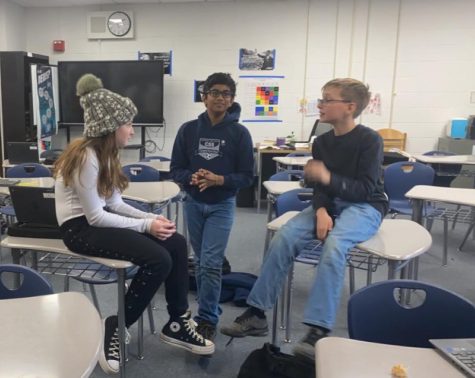
“We’re exploring a lot of various facets of current events by doing a debate round,” Wang said. “That way students can kind of find what they’re interested in, and hopefully they can take this knowledge and apply it further down the road.”
Wang notices a difference as debate members age with the club in their self-expression, growing more capable to present their arguments effectively backed by more wisdom. Her students have learned to see the value of seeing an issue from many angles, a skill that stretches beyond the tournament.
“They’re more aware of how nuanced issues are,” Wang said. “Something that they once thought was one-sided,they might have multiple perspectives on now, so they [become] a lot less polarized on an issue, which I think is an important skill to have.”
Win or lose when it comes to tournaments, Wang hopes that she is able to play a part in providing the younger members of the community with a chance to gain both the knowledge and techniques that debate enhances in all atmospheres.
“Debate has [given me the confidence to] get into leadership positions and be an activist, so hopefully they can use these skills in the future as well,” Wang said. “It feels really empowering to know that I’m making an impact on someone else.”

![During the WHS club fair, senior Molly Bergeron is watching a student sign up for her club, Eliza J. Norton Foundation. In this club, students meet every week and come up with ideas to spread the message. "[This club] really touches a lot of people in the town," Bergeron said.](https://waylandstudentpress.com/wp-content/uploads/2025/10/IMG_1335-1200x800.jpg)


